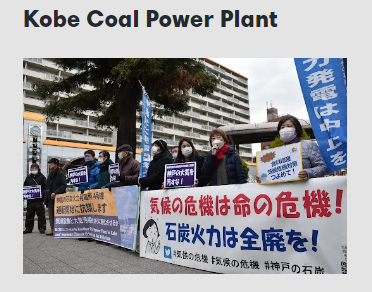On May 13, 2024, Rainforest Action Network (RAN), along with other NGOs, released the 15th annual Banking on Climate Chaos (BOCC) report.
This comprehensive research report summarizes the financing and underwriting of more than 4,200 companies in the fossil fuel industry by 60 of the world’s leading private banks, covering the period 2016-2023, using data compiled and analyzed for the fossil fuel industry as a whole, by sector, and by financing to fossil fuel expansion. The analysis shows that during the eight-year period from 2016 to 2023, after the adoption of the Paris Agreement, about US$6.9 trillion was provided by banks to the fossil fuel industry. Nearly half of this amount – about$3.3 trillion – was invested in fossil fuel expansion. In 2023, banks provided about $705 billion to the fossil fuel industry, while the amount provided to fossil fuel expansion was about $347 billion.
The three Japanese megabanks were all listed among the “Dirty Dozen”, the worst banks financing fossil fuel globally during the covered period. Mitsubishi UFJ Financial Group (MUFG) ranked in fourth place (approximately $307.7 billion), Mizuho Financial Group (Mizuho) in sixth place (approximately $272.5 billion, and ranked up from last year), and Sumitomo Mitsui Financial Group (SMBC) in ninth place (approximately $212.2 billion). The U.S. banks and Japanese megabanks are now dominating the top of the fossil fuel finance rankings.

Additionally, the three Japanese megabanks were among the worst 10 in lending and underwriting for fossil fuel sectors for the year 2023: Mizuho ranked in second place (about 37.04 billion), MUFG in fourth, and SMBC in eighth.

In financing for the expansion of fossil fuels, Mizuho ranked second (about $18.8 billion), and MUFG third (about $15.4 billion). In terms of financing for liquefied methane gas (LNG), Mizuho and MUFG hold the top two positions ($10.9 billion and $8.4 billion, respectively). The data clearly shows that Japanese megabanks are financing large amounts of money for fossil fuel-related businesses globally and are supporting those businesses.
As impacts of climate change become increasingly severe every year, this report shows that fossil fuel financing is not decreasing quickly enough. Moreover, this report highlights that, in 2023, banks’ finance for fossil fuel sectors has increased, with an especially significant increase in finance for companies developing gas import/export terminals and related infrastructure facilities.
Banks have publicly stated that they are committed to a net-zero transition, and so they should review their financing to fossil fuel-related businesses and companies that promote projects which hinder the transition to a decarbonized society, and hasten policy changes toward a just transition.
Report and data download : Banking on Climate Chaos (BOCC)
Note
Full data sets – including fossil fuel finance data, policy scores, and stories from the frontlines – are available for bankingonclimatechaos.org.

In addition, the Frontline Stories on the report’s download page highlight the activities of community groups fighting the construction and operation of a coal-fired power plant in Kobe, Japan. Please refer to the following link: <https://www.bankingonclimatechaos.org/frontline-stories/kobe-coal/>
Related Links
English PR:Banks financed fossil fuels by $6.9 trillion dollars since the Paris Agreement; $705 billion provided in 2023 alone; JP Morgan Chase, Mizuho, and Bank of America are worst 3 funders
Written/Published: Rainforest Action Network, et al.
Publishing Date: May 13, 2024
